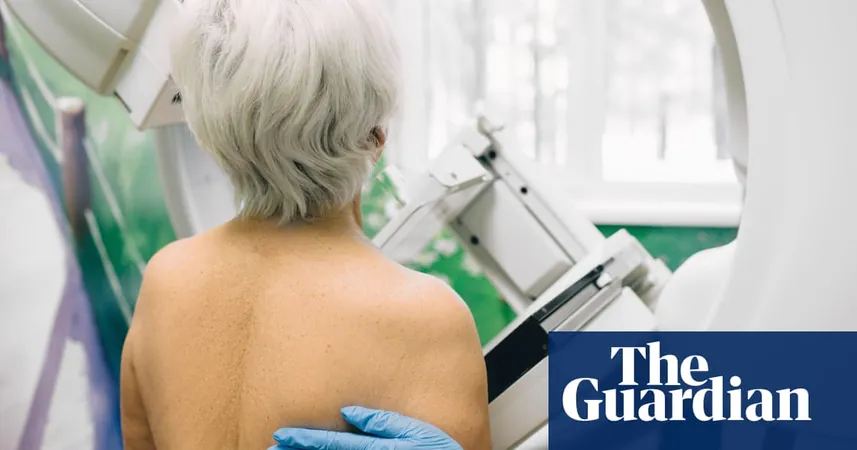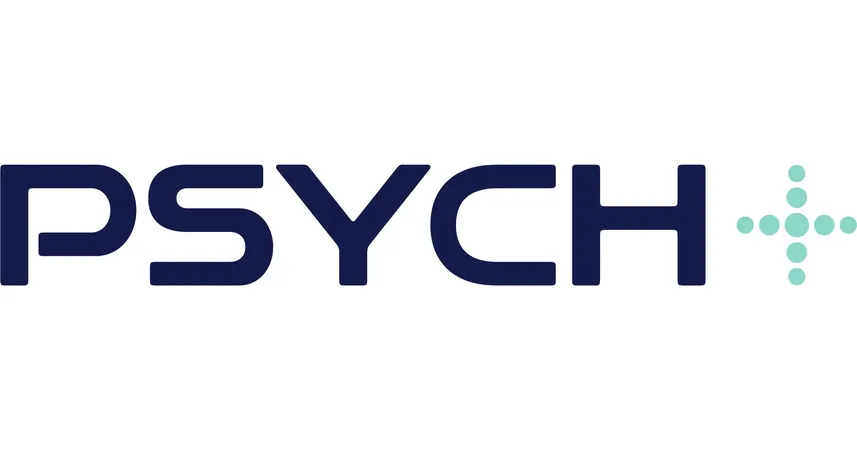
Alarming Decline in Cancer Screening Rates Post-Pandemic: What You Need to Know
2024-12-19
Author: Nur
Introduction
A recent analysis by Cancer Research UK (CRUK) has raised a critical warning regarding the decline in cancer screening participation in the UK, particularly amid ongoing efforts to combat the disease. The health charity reported that significant numbers of cancers could have been caught earlier through screening, which has proven effective in early detection.
Screening Statistics
Between 2019 and 2023, breast, bowel, and cervical cancer screening programs identified nearly 90,000 cases of cancer. This includes approximately 62,000 breast cancer cases, 23,000 bowel cancer cases, and 4,400 cervical cancer cases. However, the charity has expressed grave concerns over the decrease in participation rates for breast and cervical cancer screenings, which have not yet rebounded to pre-pandemic levels.
Current Participation Rates
Currently, around 70% of those eligible are participating in bowel cancer screenings, while cervical and breast cancer screenings have participation rates of 69% and 65%, respectively. Notably, the uptake for breast cancer screening has dropped from 71.1% in 2019, highlighting the urgent need for increased engagement.
Decline in Cervical Cancer Screening
Cervical cancer screening has been on a consistent decline over the past decade, dropping from 74.2% in 2014 to just 68.7% in 2023. CRUK is urging for improvements in access to screenings across England, including options for users to book appointments outside normal working hours.
Call to Action
Michelle Mitchell, chief executive of CRUK, emphasized the importance of increasing accessibility: "Improving access to screening means better chances of catching cancer early." The NHS has set a target to diagnose 75% of all cancers at an earlier stage (stages 1 or 2) by 2028, but CRUK warns that this goal is not currently on track. Enhanced screening initiatives will be crucial to improve these outcomes.
Understanding Screening Eligibility
Dr. Claire Knight, CRUK’s senior health information manager, noted, "The three screening programs are available to different groups of people, and eligibility can be confirmed through the NHS website. If you’re on your GP's register, you’ll typically receive an invite for screening."
The Importance of Early Detection
It’s crucial to understand that cancer screening is intended for those without symptoms. If individuals notice any unusual changes in their bodies, they should not wait for their next screening invite but consult their doctor promptly. Early detection can significantly improve the effectiveness of treatment.
Government Support and Strategies
A spokesperson for the Department of Health and Social Care echoed these concerns, stating, "Every second counts in the fight against cancer." They encouraged everyone to take advantage of screening offers, as early diagnosis can save lives. The spokesperson also mentioned ongoing strategies to enhance the NHS’s cancer response, highlighting an integrated approach that includes prevention, early diagnosis, treatment, and ongoing research.
Conclusion
As the healthcare community rallies for increased awareness and participation in screening programs, the message is clear: timely screenings can save lives, and everyone is urged to prioritize their health by taking action today!



 Brasil (PT)
Brasil (PT)
 Canada (EN)
Canada (EN)
 Chile (ES)
Chile (ES)
 España (ES)
España (ES)
 France (FR)
France (FR)
 Hong Kong (EN)
Hong Kong (EN)
 Italia (IT)
Italia (IT)
 日本 (JA)
日本 (JA)
 Magyarország (HU)
Magyarország (HU)
 Norge (NO)
Norge (NO)
 Polska (PL)
Polska (PL)
 Schweiz (DE)
Schweiz (DE)
 Singapore (EN)
Singapore (EN)
 Sverige (SV)
Sverige (SV)
 Suomi (FI)
Suomi (FI)
 Türkiye (TR)
Türkiye (TR)